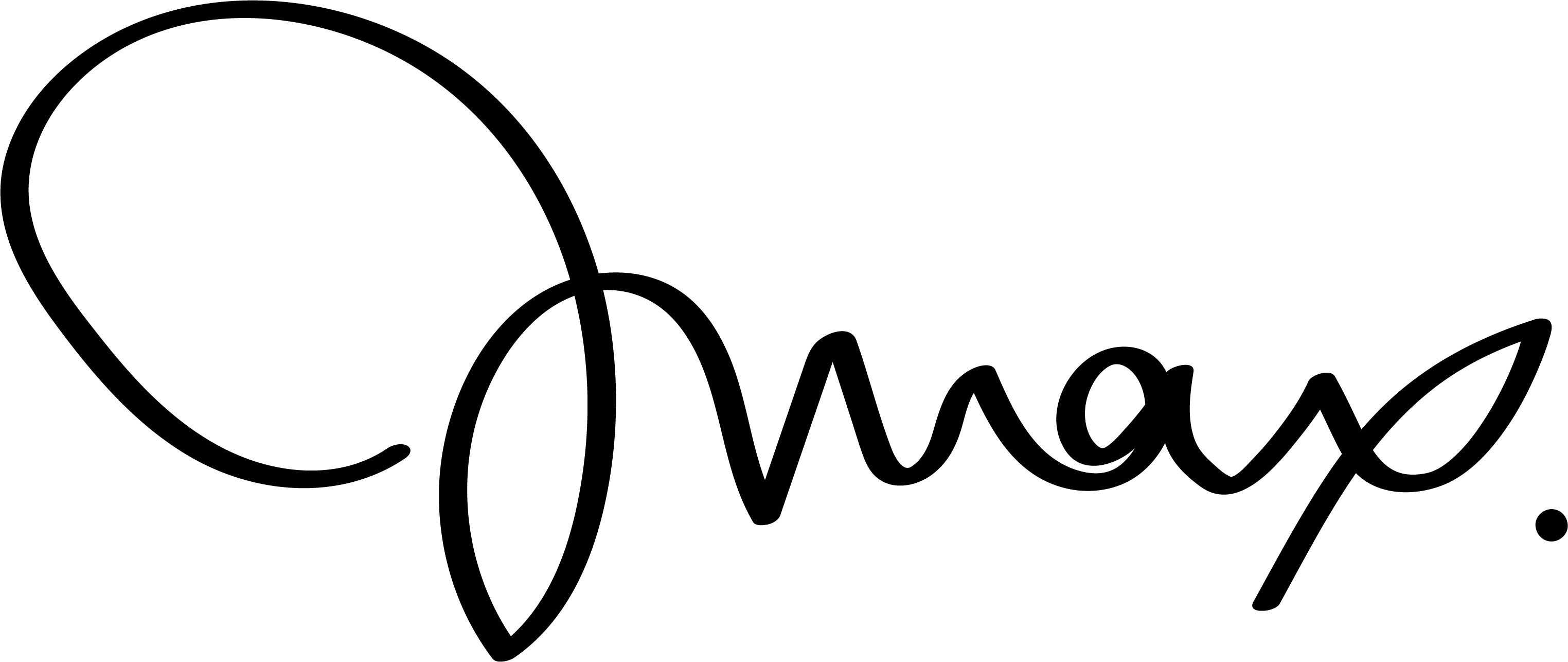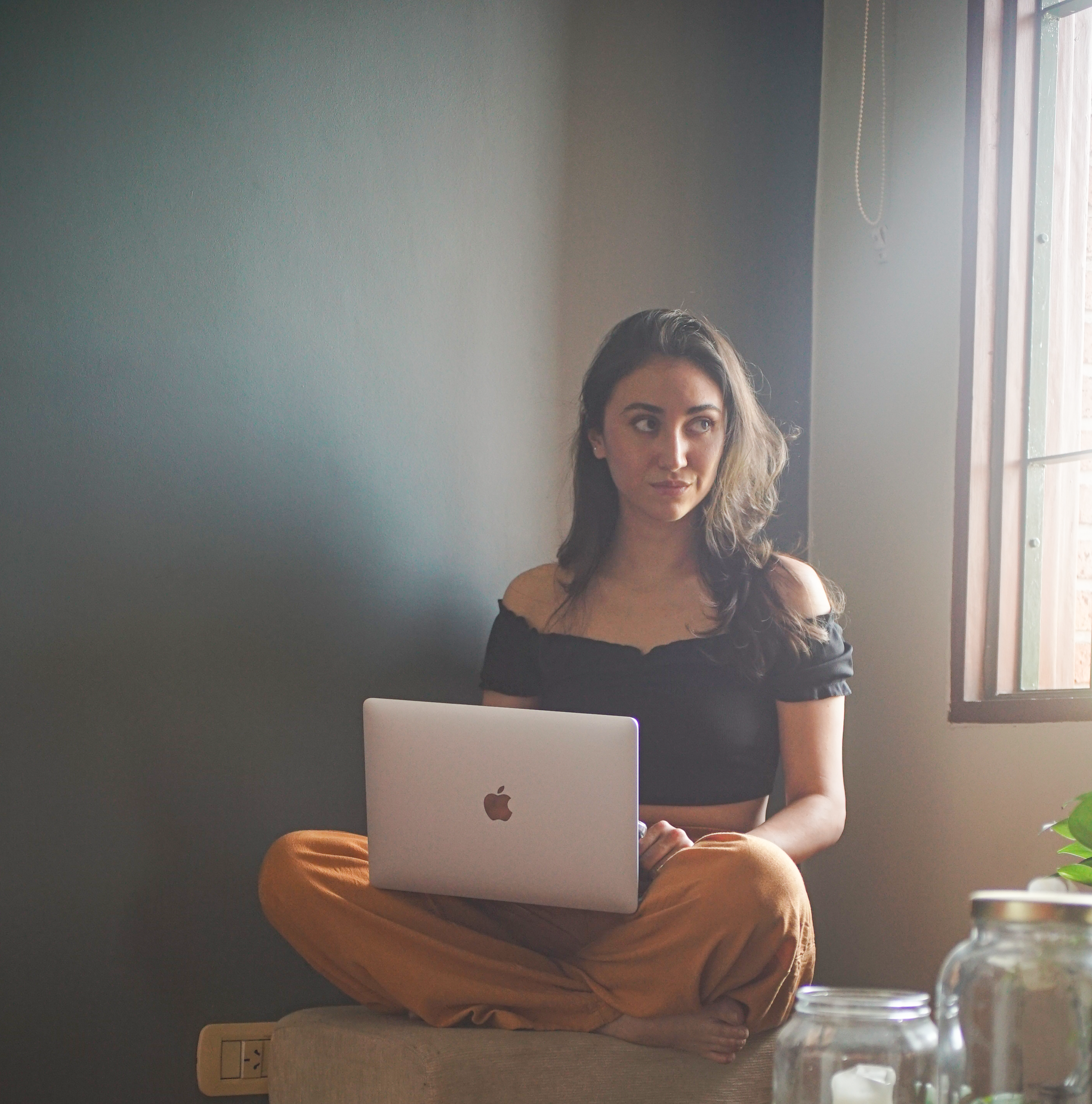Are you stuck?
For many years of my life, I felt stuck… and I knew it. I think when you don’t realize it, it hurts much less, because sometimes ignorance is bliss, but when you know it and can’t find a way out, it can be a slow and painful spiritual death.
Being stuck can mean facing a blank page and not knowing what to do, or having ideas but being unable to develop them… it can manifest in a thousand ways. I had (and still have) a clear execution problem, but I didn’t realize this until I decided to take action. The funny thing is that when you don’t know what to do or where to start, the truth is it doesn’t matter where you begin, even if it’s in the wrong place, because sooner or later, if you keep searching, something will lead you to the right path.
I was a bit afraid that today’s topic would be too obvious, but recently I watched a video by Ali Abdaal, a very well-known productivity influencer on YouTube (he also has a wonderful book that I’ll talk about in another post), and in the video, he said that what we believe is obvious to us is sometimes not obvious to the rest of the world. So I finally decided to talk about The Artist’s Way by Julia Cameron, which was a key book that got me to take action.
I feel like this book is super well-known, but very few people actually finish it. I was one of those people who started and abandoned this book many times. This book takes you on an unconventional journey of artistic recovery. Whenever there’s a problem with execution, the first thing people tell you is to sit down and just do it, but this book goes a bit beyond that. It’s a 12-week program where you’re given small tasks (or adventures) to do each week, so you can stop being afraid of the dream you so want to chase.
In my case, it was incredibly hard for me to sit down and compose and produce. My God, I suffered horribly. I even felt guilty for not doing something more productive than making music, as if it were a waste of time. This was the first thing the book addressed, as if it had been written just for me.
Through a series of reflections and tasks, week by week I started to regain my artistic power, and I stopped being so conscious of whether what I was doing was worthwhile, whether it would be good or not, or if someone would like it or not… Even though these questions still pop into my head sometimes, they no longer stop me from sitting down to work.
It teaches you that, yes, you must sit down to work whether you’re inspired or not, which is incredibly true because even if you’re not inspired at the moment, it’s better to do something bad and practice so that when inspiration strikes, you won’t be unable to act due to a lack of tools. That hurts a lot more, I think. In fact, it happened to me many times that I had ideas in my head (thankfully I have the habit of recording them all for many years now), and then couldn’t translate them into my instruments and finish them due to a lack of practice. This only made me feel like I was wasting even more time and led me to believe I wasn’t good at what I love. Whether I’m good or not, there’s no way I’ll ever be if I don’t practice every day…
But beyond the tasks and adventures the book takes you on, there’s one fundamental tool for this rehabilitation, to which I owe basically all my achievements to date… Morning Pages.
Morning Pages are three daily pages you need to write in the morning when you wake up. They don’t have to be poetic or artistic or anything like that; they’re three pages of pure nonsense that you have trapped in your head and need to get out for basic survival. You don’t have to read them or show them to anyone; the simple act of getting out what’s buzzing in your head, bothering you without you even realizing it, like that tab you had open on your browser without knowing and slowing everything down, helps WONDERS. In my case, incorporating this habit wasn’t too difficult because I already had a habit of writing at night, but when I started this, I decided to do it in the morning no matter what, and leave it optional at night, though I almost always end up writing at night anyway.
Thanks to this habit of writing, many times when I felt bad, I was able to figure out what was going on by freely developing it on a page without the fear of anyone judging it. Often, the conflict that had me stuck ended up resolving itself on the page, and I was able to start my day with a lighter attitude.

It’s been more than a month since I finished the book, almost two months now, and I’ve still maintained the habit of writing every morning. In fact, if I don’t do it, I feel very strange, and it’s like I wake up confused because sometimes I also clarify what I’m going to do that same day on that page. Anyway, it’s not always that everything flows perfectly; sometimes I get distracted, stare into space, or don’t know what to write. They say that when you don’t know what to write, it doesn’t matter, you just have to fill the three damned pages even if you fill them with “I don’t know what to write, I don’t know what to write” until the end because this is the start of the habit of DOING.
But Morning Pages are not just about intense brain dumps or doing for the sake of doing; what makes this the most important daily exercise from this book is that many of the tasks you need to do during the program involve answering questions and reflecting on what the author asks of you, and responding honestly to these tasks is precisely the most important part of the whole rehabilitation. It’s like when you’re blending something and you open the lid, and a green smoothie tornado from your fifth detox diet attempt comes flying out. EVERYTHING COMES OUT, AND IT’S IMPOSSIBLE TO STOP IT. At that moment, you realize it might not just be a problem of execution but also that there were things hidden deep down that you needed to solve.
Anyway, execution will sooner or later lead you to resolve or reflect; what matters here is sitting down to create. Giving yourself the time to create, not feeling bad, and letting yourself own your time without feeling guilty. That’s what matters.
Now, some time after finishing the program, I really recognize that between tasks that seemed strange or with no apparent connection, all of it helped me find peace and enjoy my day-to-day life a little more. It wasn’t the only thing, of course, but it was a very important factor. Today, I truly can’t imagine starting my day without writing, and if I don’t, as soon as I find the time, I write those three pages, which over time I’ve added things to, like now, after finishing the three pages, I make a list of five things I’m grateful for and end with a phrase I write every day…
“Today is a good day to make the impossible possible.”
Before, for me, it was impossible to sit down and compose, or even imagine writing a post. In fact, I always started and abandoned it, but thanks to all this work I’ve been doing these past few months, what was once impossible is now possible, and what once was a possibility, like… giving up on doubt, is no longer an option.
I hope you enjoyed this story, I really recommend this book if you feel stuck. At first, you’ll feel a bit of resistance, but as the weeks go by, you’ll understand that everything has a reason… both inside and outside of that book, that’s the reality.
But hey, I can’t leave without dropping the bomb of every post…
Are you stuck in your dream? What’s keeping you stuck?
Now yes, thanks for reading. See you next week.
Big hug,
Max.

